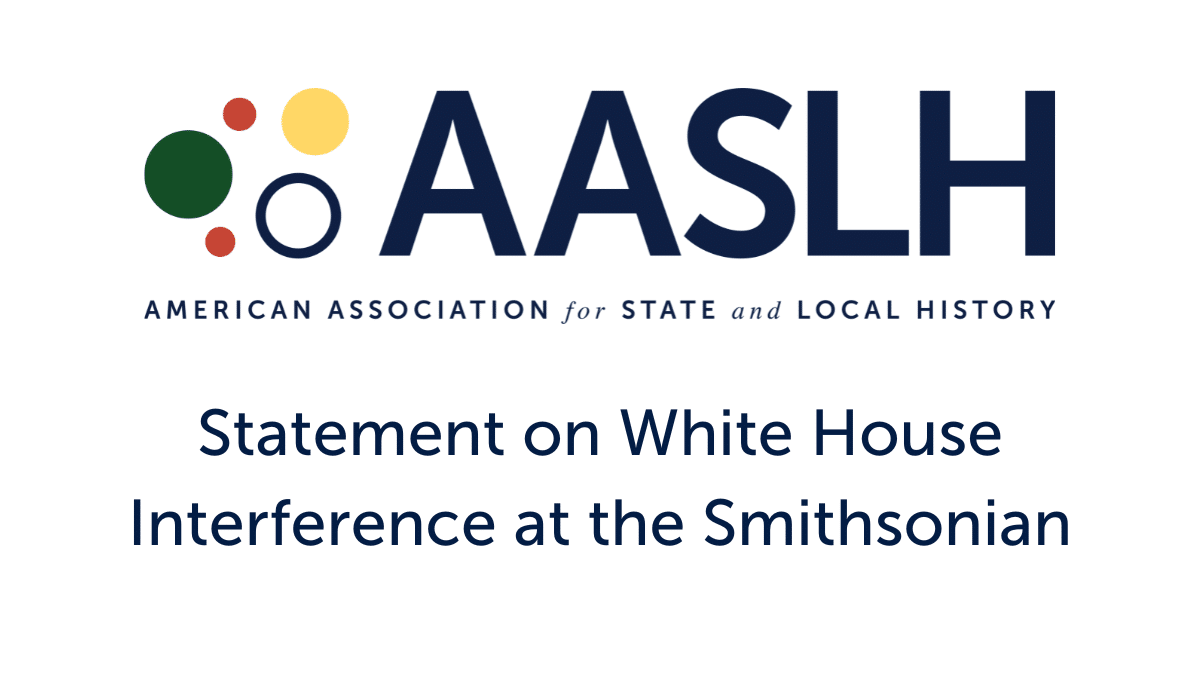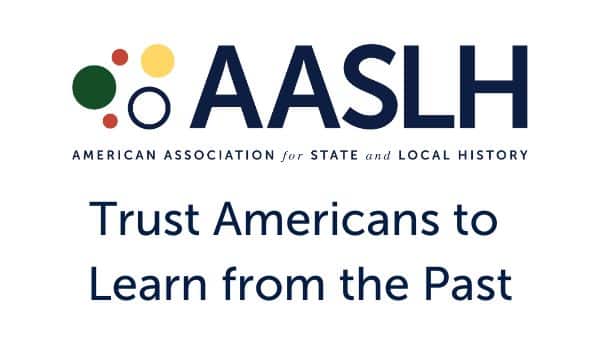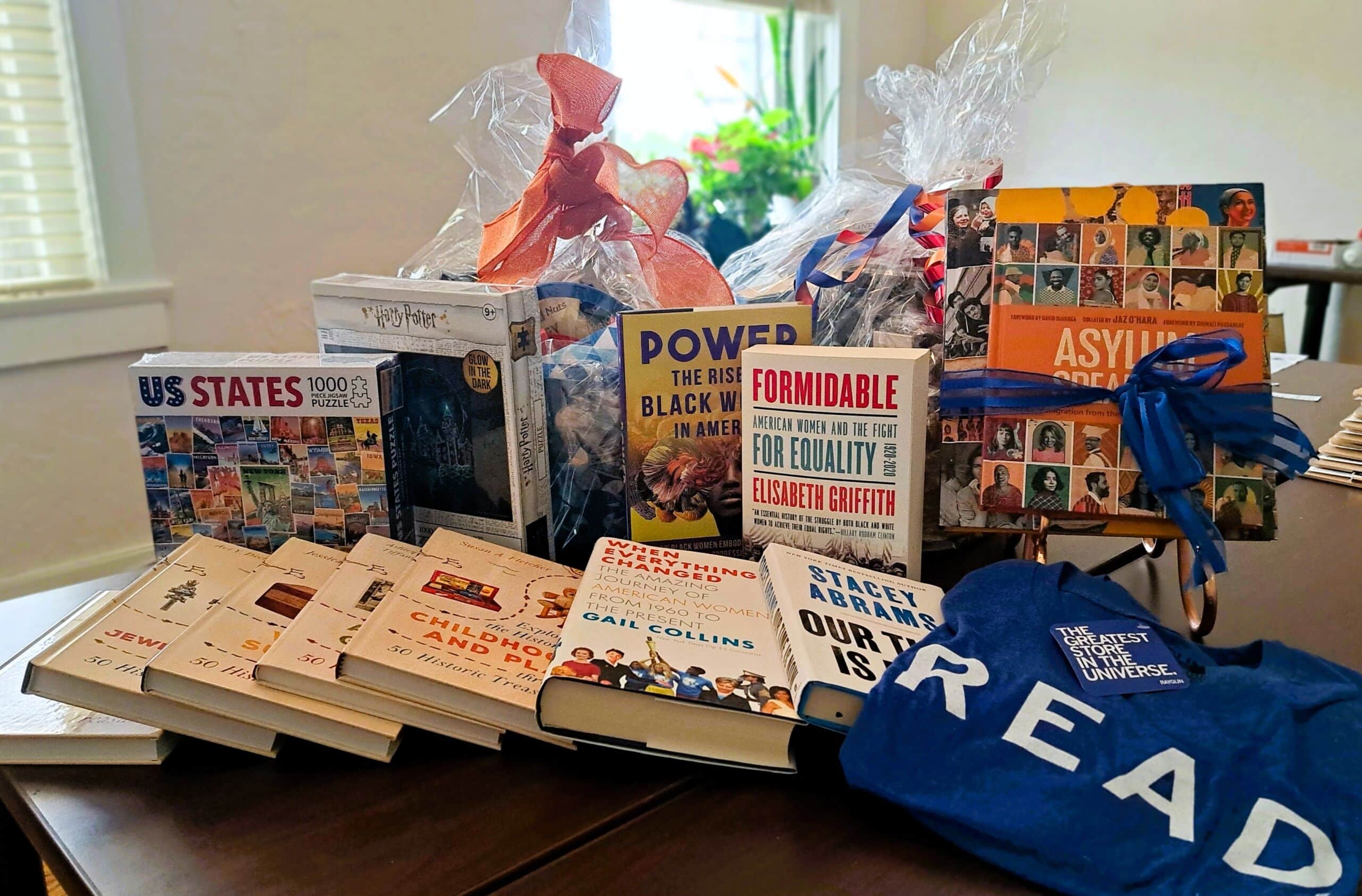
By Richard Josey, Chair, AASLH Diversity and Inclusion Committee
This morning, I watched two white Carrollton, Georgia, teenagers in a video describing the “ingredients” to create a black person. Seeing this video reminded me of the other disturbing videos and stories that have emerged on my social media timeline and in the broader national news feeds since the start of the COVID-19 pandemic. To be clear, these types of hateful acts have happened well before this moment in history. But seeing this occur in connection to current events, including loss of life, is more than troubling.
Sadly, racism, discrimination, and other forms of exclusion are all too prevalent in the coronavirus pandemic and its response. It takes several forms. In Woodbury, Minnesota, at the home of an Asian American couple, someone left a threatening note featuring statements like, “We’re watching you” and “Take the Chinese virus back to China.” Also alarming are reports of the disproportionately higher rate of coronavirus infections of African Americans. For example, African Americans in Chicago comprise less than one-third of the population. Still, they account for more than half of those who tested positive for COVID-19 and 72% of virus-related deaths in the city. The coronavirus, like other national events, has affected every one of us in different ways, yet bigotry, prejudice, and hatred persist.
Meanwhile, all of us are going through incredible additional stress because of the COVID-19 crisis. Across the nation, individual states issued “stay-at-home” orders, causing businesses to have to react fast. Leaders are under extraordinary pressure to make decisions quickly with incomplete and rapidly evolving information. Museums and historical organizations, like other businesses, has felt the impact of the crisis. Some staff are being furloughed, laid off, or having to reduce hours to meet the business’s needs. Others are moving to remote work, which requires more Zoom calls, which requires technology that some may not be able to access. Many employees are working extraordinary hours to balance work and home. We are all trying to figure this out while trying to manage the stress that accompanies the uncertainty.
Against this backdrop of the pervasive nature of bigotry, prejudice, and hatred in U.S. culture, and the extraordinary impact of COVID-19, I have found myself engaging in regular meditation. I think of my dear colleagues across the country faced with personal and professional challenges. I think of the efforts of various individuals and groups, including the AASLH Diversity and Inclusion Committee, to help establish a more inclusive culture in the field. After a few awkward conversations with people I hold dear, I found myself trying to understand how stress impacts inclusion efforts.
Here’s what I’ve found: in times of stress, “Individuals tend to make more habitual responses than goal-directed choices, be less likely to adjust their initial judgment, and rely more on gut feelings in social situations.” [1]
This phenomenon seems to be a common understanding among researchers. I’m also finding this in my own experience, that humans in pressure situations tend to rely more on their gut feelings and are less likely to internalize and address their bias.
What does this mean for us?
 I remember a lesson I learned as a younger interpreter attending AASLH’s Seminar for Historical Administration (now the History Leadership Institute): your sphere of influence dictates where you have control, where you may have influence, and where you have no control. Since then, I’ve noticed how we tend to place more focus on the things we have no control over instead of the things we have control or influence over. We can’t control the prejudiced behavior of people in our country. However, we do have control and influence over several things, including ourselves, our behavior, and our actions.
I remember a lesson I learned as a younger interpreter attending AASLH’s Seminar for Historical Administration (now the History Leadership Institute): your sphere of influence dictates where you have control, where you may have influence, and where you have no control. Since then, I’ve noticed how we tend to place more focus on the things we have no control over instead of the things we have control or influence over. We can’t control the prejudiced behavior of people in our country. However, we do have control and influence over several things, including ourselves, our behavior, and our actions.
So, this leaves one final question:
During this stressful situation, accepting that our stress impacts our decision making, what should we be doing to ensure that we exhibit inclusive behaviors during this COVID-19 pandemic and beyond?
There is no one-size-fits-all solution. However, there are some universal tactics to find solutions for individual institutions.
Join me, along with Marian Carpenter and Omar Eaton-Martínez, for a live conversation on Tuesday, April 28, at 3 PM EDT/12 PM PDT on “Inclusivity During COVID-19, and Beyond.” As part of the AASLH Conversations Series, we will explore tactics to mitigate the impact on the individuals and groups in your organization, many of whom may be disproportionately affected by this crisis. If there any topics you have questions about, please feel free to email them to us at [email protected]. We understand that numerous areas need attention. So, we’d also like to explore ways for you to stay engaged with the AASLH Diversity and Inclusion Committee throughout this crisis and beyond. We hope to see you on Tuesday for what is becoming a very informative time for us all.
Register Here
[1] R. Yu, “Stress potentiates decision biases: a stress induced deliberation-to-intuition (SIDI) model,” Neurobiology of Stress, 3 (2016): 83-95.
Richard Josey is Founder and Principal Consultant for Collective Journeys LLC and Chair of AASLH’s Diversity and Inclusion Committee.
How is your institution coping with COVID-19? Share your ideas and experiments with the field on our blog. Email [email protected] to submit a blog post.



